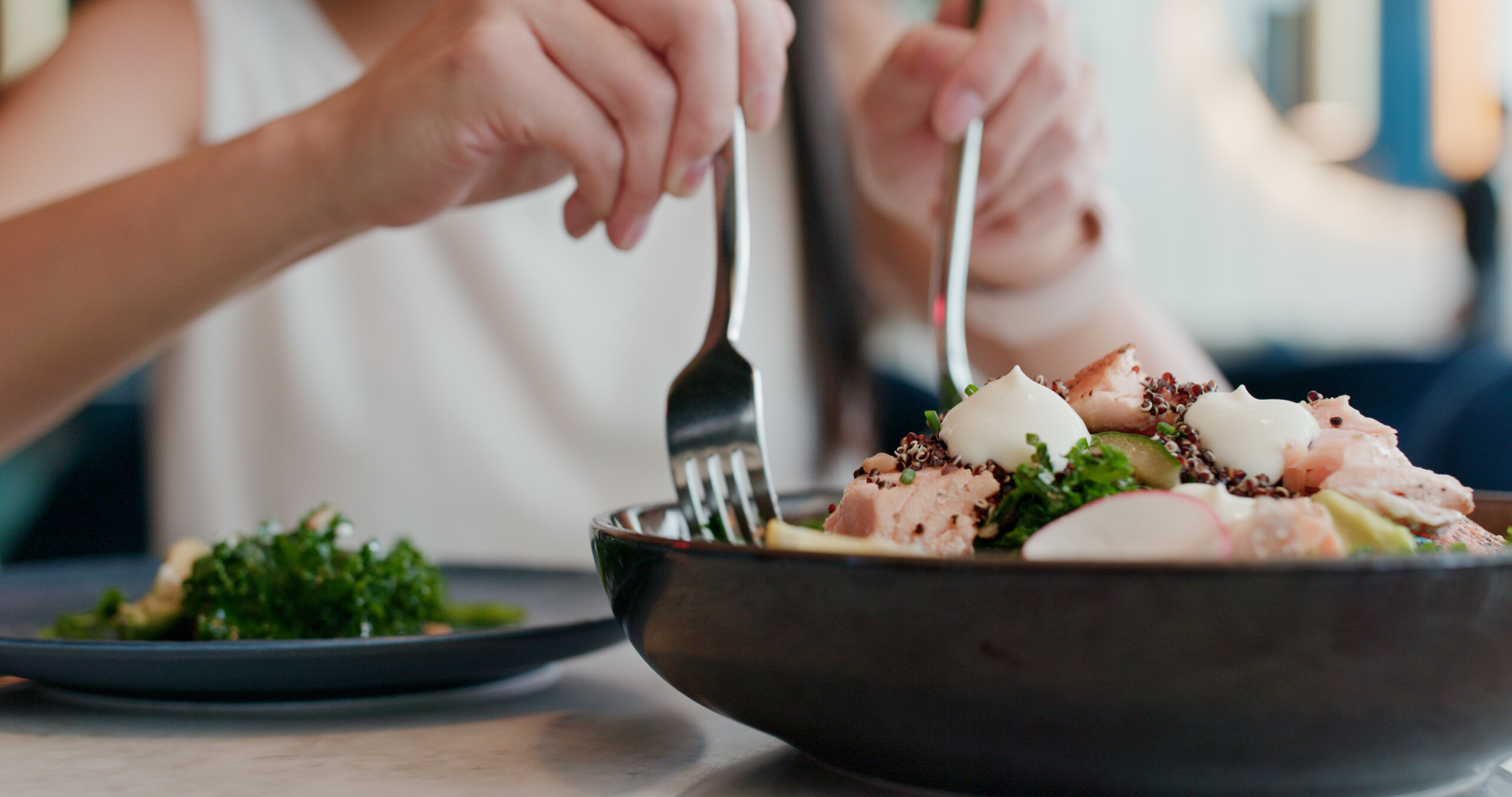Troubled relationship with food
What is a troubled relationship with food?
A troubled relationship with food lies somewhere between “guilt-free eating” and “eating disorders”.
It can be difficult to recognize, since it is widely integrated and even valued in our society.
Here are a few tell tale signs:
- Feeling like you’re eating your emotions
- Food obsesses us and haunts our thoughts constantly (high mental load)
- Avoiding social outings, such as restaurants, for fear of not being able to control food intake
- Being obsessed by the number on the scale
- Repeated dieting
- Not feeling hungry before eating
- Having little appetite
- Eating large quantities of food in a short space of time (food cravings/compulsion)
- Moving to burn calories
- Move to eat dessert
- Eating less to compensate for the previous day’s “excesses
Why would you require a consultation?
- To understand where these excessive preoccupations with weight and diet come from.
- To receive reliable information on the consequences of dietary restrictions/diets on physical and psychological health, and even on the potential for long-term weight loss
- To receive support and concrete tools for regaining a healthy, positive relationship with food.
- To reduce the mental burden associated with food.
Examples of reasons for a consultation:
- Calculating calories
- Calculating portions
- Feeling guilty after eating certain foods
- Feeling the need to compensate with physical activity or by reducing the next day’s portions when you feel you have “overindulged”.
- Not sensing hunger and satiety signals
- Not being able to respect hunger and satiety signals and food cravings
- Being obsessed by food or the number on the scale
- Experiencing food cravings or compulsions
- Not being able to keep certain foods in the house for fear of eating them all at once
